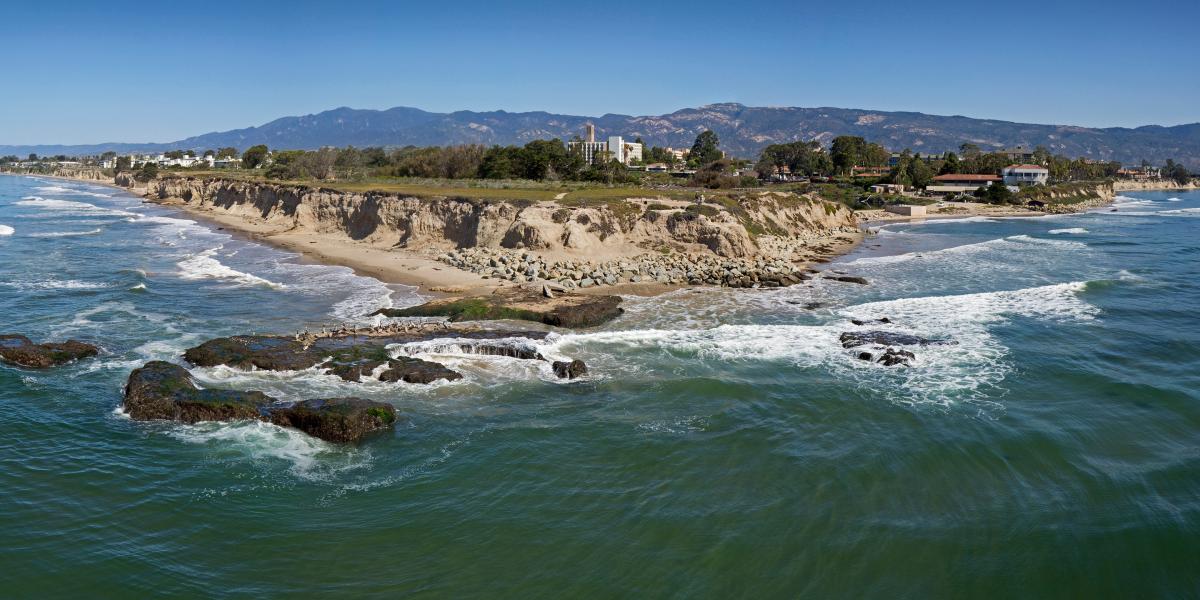
The 17th Occasional Workshop in Environmental and Resource Economics was held last week at UCSB. For many of us, it marks the highlight of the conference circuit.
Established in 1994 by Bob Deacon and Charlie Kolstad, the Occasional has stayed true to its heritage—by which I mean that it continues to be held at the definitively occasional rate of one workshop every 1.471 years. More importantly, it serves as one of the most relaxed, yet intellectually invigorating conference environments that I know of. The participant body is very mixed and there is no sense of professional hierarchy or ego. All presentations are held in a single room so no one has to run off to different parallel sessions. Oh, and the beach setting and Santa Barbara weather don't hurt either.
It's not surprising, then, that the Occasional draws a large number of repeat visitors with every new edition. I'm a relative newcomer by these standards, having only attended three workshops. But I think my experiences offer a good snapshot of what it is to be an Occasional participant. I was a regular audience member during my first attendance in 2015. I gave a five-minute "egg-timer" talk in 2017, and I had the good fortune to kick off this year's event by giving the first presentation. (At current rates, I fully expect to be in charge of next year's organizational committee).
The point I want to make is that the Occasional is a rewarding experience, no matter your participation role. It's as much fun to learn about the amazing work being done in our field as it is to present your own research in front of what a colleague of mine once described as a "dream audience"—friendly, curious, and extremely knowledgeable.
The colloquial atmosphere is especially welcoming for graduate students and early career economists. A quick note to PhDs and postdocs—I highly encourage you to apply for future workshops. You will find that even the biggest names in environmental and resource economics are consistently approachable and eager to hear about your research ideas.
I would be remiss to not give kudos to the discussants, who are perhaps the real stars of the show. And this year was no exception. For me, the care, depth, and humor that the discussants showed while going through their assigned papers was a distinguishing feature of the workshop. I learned at least as much listening to them as I did the main presenters. It was like watching an expert referee report in real-time. (But much nicer.)
So what were the big themes from this year's event? You can find the workshop program here, but below are a few topics that stuck out for me:
- Externalities. It may seem redundant to mention externalities as a special subject of interest for an environmental economics workshop. However, several of this year's talks underscored the ways in which we are expanding and deepening our understanding of environmental externalities--from the unexplored health impacts of small particulate matter to the suicide risks of wind turbines.
- Market power. Much like Hansel in Zoolander, it's clear that the issue of market power is "so hot right now." (You had to be there.) Moreover, while market power is a topic of interest across the economic and political spectrum, environmental and resource economists seem especially well poised to tackle the problem in sectors like energy and transport.
- Big data. Gone are the days when audiences were easily impressed by million-row datasets. We're now moving into an era where datasets are comprised of billions of observations. Though everyone seems to be talking about big data nowadays, it was particularly exciting to hear several talks highlight the ways that big data is being used to answer important environmental questions.
- Old questions, new tools. Another trend that impressed me was the creative ways in which people are using new tools to tackle old environmental problems. This covers everything from using machine learning to identify parameters of interest, to digitizing archival documents for modern empirical analysis. Speaking of which…
- A new Nobel? We all agreed that there should be a specialized Nobel Prize in empirical environmental economics for "heroic work in data acquisition, cleaning, wrangling and general awesomeness" (or something like that). Some of us may have even self-nominated for the prize.
In closing, I'd like to extend a special thanks to this year's organizers, Olivier Deschênes and Kyle Meng, as well as their very able assistant, Michael Pizzi. This year marks the first time that the workshop was run under the formal auspices of emLab. I'm excited to see where both institutions go from here and am already looking forward to next time. See you occasionally.



